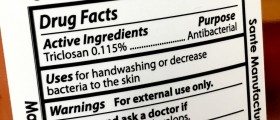
About Antibiotics
Antibiotics are very useful medications, able to defend usfrom many bacteria and fungi. However, these drugs do not affect viruses, andwhen you have a viral infection, such as sore throat, common cold or flu, usingantibiotics won’t solve your problem. In some cases, sore throat can be provokedby bacterial infection and you should always consult your doctor about this condition,because you may need antibiotics.
According to the type of bacteria they can fight against, wecan differentiate antibiotics used to attack one specific type or broadspectrum drugs, useful against several bacteria. Your doctors may prescribesome oral antibiotics (pills) or antibiotic creams (or other topicalpreparations). There is also an option to get an injection or intravenous antibiotic,especially in the hospital environment.
You must use these medications exactly as they wereprescribed to you, and for as long as your doctor told you to. Never take antibioticsprescribed to another person or give your prescription to anyone else, becausethat may cause serious adverse effects. Antibiotic abuse is also associated withthe increased number of bacteria resistant to drugs, so that’s another reasonwhy you shouldn’t use these medications unless your doctor prescribed them.
Mechanisms of Antibiotic Action
These drugs work by affecting the harmful microorganisms in humanbody. Bacteria or any other microorganism can enter our body, and start tomultiply, leading to infections and diseases. How long you should take antibioticsfor depends on the severity of the infection, and the treatment may last for a weekand up to 4 weeks. During that time, antibiotics should affect the growth ofmicroorganisms and cure the condition.
There are several modes of antibiotic action. These medicationscan inhibit the conversion of glucose to energy in bacterial cells, leavingthem without the energy to live and multiply further. Also, antibiotics can interferewith the production of cell wall or other content of bacterial cells, or stopthe multiplication of bacteria.
There are two types of antibiotics - the ones that stopmultiplying of the bacterial cells, known as bacteriostatic drugs, and the other,called bactericide antibiotics, that kill the bacteria present in human body.
Adverse Effects of Antibiotics
Nausea, vomiting and diarrhea are the most common sideeffects during the use of antibiotic drugs. Patients can also experience differentinfections of the mouth and digestive tract cause by fungi, or rarely, hearingloss, sunlight sensitivity, blood problems, bowel inflammation or kidneystones.
Allergic reactions to antibiotics are also known. They mightbe characterized by the skin rash, but there is also severe allergic reaction,known as anaphylactic shock. This condition is potentially lethal and must betaken care of immediately by a medical professional.
















Your thoughts on this
Loading...